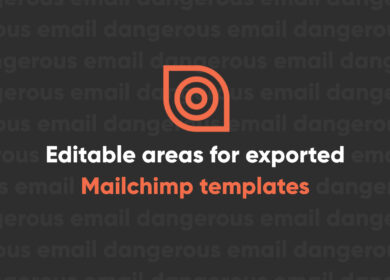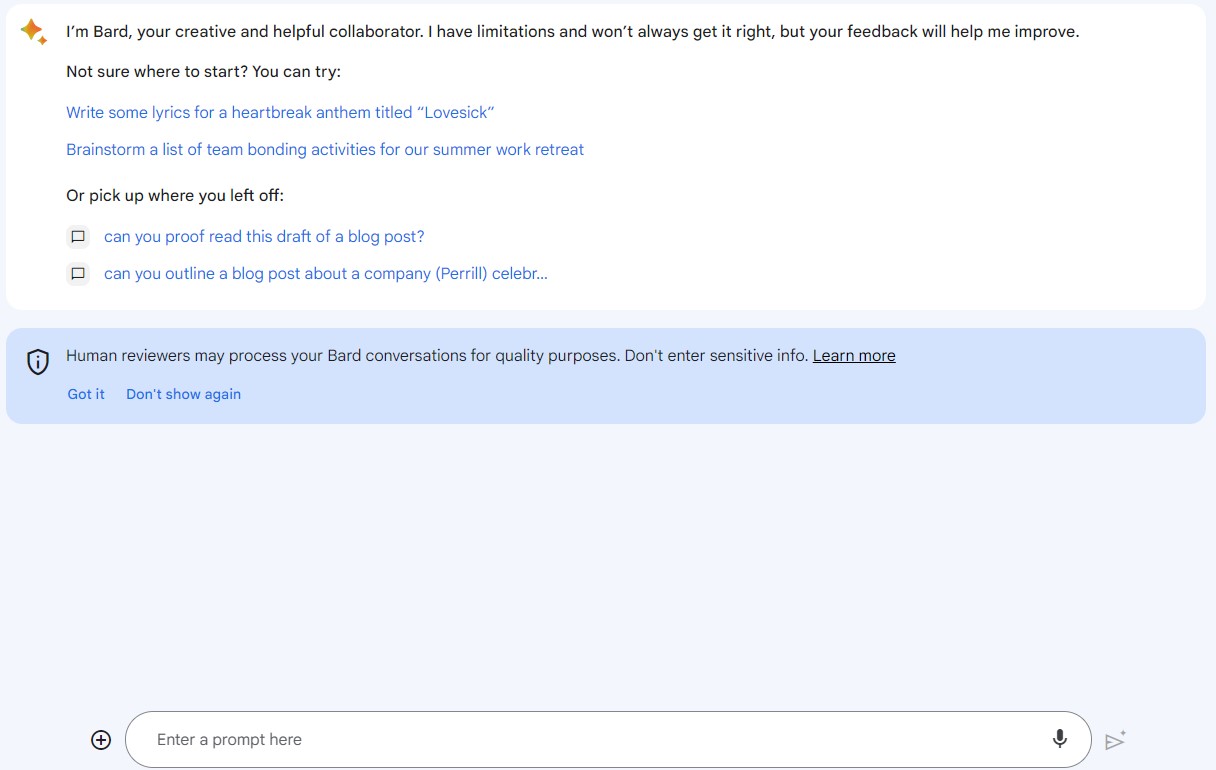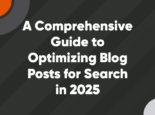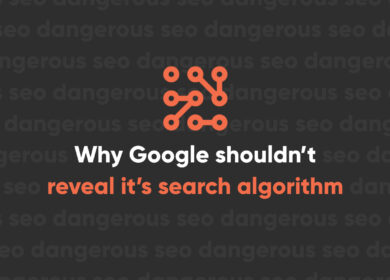
The Impact of Generative AI on Digital Marketing

For the past few months, conversation in the marketing industry has revolved around AI. Since ChatGPT took off at the end of 2022, it’s almost guaranteed that you'll run into at least one AI-related post when you log into LinkedIn. The release of ChatGPT brought a flood of other AI tools to the internet, each bringing varying degrees of helpfulness to marketers. Despite all of these other AI tools, ChatGPT has remained at the forefront of the conversation due to both its positive and negative potential for marketers.
With these continuous AI updates, everyone seems to be wondering the same thing: how is AI impacting the marketing industry, and how can we effectively leverage AI?
Let's break down AI's impact on the marketing industry and discuss the value and limitations of using AI in marketing.
How is AI impacting the marketing industry?
Aside from being the topic of conversation for months, AI is already impacting the marketing industry. Tech giants are competing for dominance by pushing out new AI technology, and marketers are working to keep up with the tools hitting the market. It has a wide range of potential uses and is already showing its value in several capacities.
From more personalized marketing outreach to better options for breaking down data, AI truly is a marketing tool for the ages.
1. Get better targeting
Whether you’re running ad campaigns or are trying to hone in on a target audience, AI can help you determine the perfect audience to target.
When it comes to advertising, AI can get granular with targeting and, through machine learning, can pick up on signals that determine whether or not an audience attribute is working. Advertising platforms are integrating AI services with their programs to help advertisers get the most out of their ad campaigns.
2. Save time on "busy work"
A big positive of using AI is that it saves time. By automating some of the menial or tedious tasks in your workday, you'll have more time for tasks that require critical thinking and creativity.
3. Expedite output
Tools like ChatGPT can help generate content at scale very quickly. There are limitations and best practices with this, but never before have we been able to research content ideas and create outlines and drafts so quickly.
4. Conduct brainstorms
For those of us who could use someone (or something) to bounce ideas off of during the workday, AI can be a great tool for generating new ideas.
5. Personalize content and messaging
Just as AI can target that ideal audience (based on your prompts, of course), it can also provide you with a starting point with how best to tailor your messaging to your audiences. The key phrase here? Starting point.
6. Streamline customer service
With a larger part of digital marketing becoming focused on providing excellent customer service online, finding ways to quickly help customers while still providing expert assistance is an area that AI can help out with quite a bit. From generated auto-responses to the more typical chatbots, AI can predict customer needs and assist with solving issues.
7. Get assistance with predictive analytics
AI can look at large amounts of data, analyze and synthesize it, and provide considerations, advice, and predictions for the future.
8. Use generated artwork and graphics
AI can create “art” and graphics from prompts, and can also take an existing image and merge it with another one or add to it. This is helpful for marketers who need original graphics for blog posts, social posts, etc.
These are just a few of the many capabilities AI is contributing to the marketing industry. The industry as a whole will have to adapt to the increased use of machines for tasks once seen as strictly human.
Benefits of using generative AI for marketing
As with most tools, there are some major benefits and drawbacks to using AI. Here are some of the positive attributes that AI brings to the table:
1. It’s extremely fast
As mentioned above, AI can generate content at lightning speed (ok, not that fast. But close!).
This makes it easy for content creators to quickly put together a strong first draft together before going back in to edit and add to it.
It’s fast in general, too. If you’ve got a question, want to analyze data, need to put together a slideshow, or need to find vegetarian dinner ideas, AI has you covered.
2. It has many applications
AI already has tons of uses, with more applications hitting the market every day. Chances are, if you are looking for an AI tool that will solve a given problem, you’ll be able to find one.
3. It allows you to save time (and money)
Time is money, as they say, and AI can help you save on both. With more time back in your day, you can get to things that have been carried over on your to-do list from week to week.
4. AI-written content can appear indistinguishable from human content
This is a point that might feel scary or ominous. It’s weird to think about reading an article on the internet that was written exclusively by a machine and not noticing the difference. The Matrix, anyone?
But what’s important about this is that it's the first time that we've reached a point where machines can replicate human writing so well while interacting with human input. Now, it's easier to generate content for your website without allocating hours upon hours to content creation.
Limitations of AI for marketers
Let's get into how AI can only get us so far right now and the factors marketers must be aware of when implementing AI technologies.
1. The value and quality of content
One concern with using AI to generate content is that AI is working from a finite knowledge base, meaning it might replicate existing content, resulting in plagiarism. To ensure the content is high-quality, marketers need to edit and add their own spin to AI-produced content.
Remember that your biggest priority when creating content should be adding value to your reader, not producing as much content as quickly as possible. You'll also need to prioritize optimizing your content for search, so edit content to appeal to both humans and search engines.
2. Potential for mistakes and inaccuracies
AI tends to make mistakes and hallucinate, so fact-checking AI-generated content is crucial. AI can go so far as to defend its wrong answers rather than admitting its shortcomings, making this fault even worse. Be aware of this as you use AI to create content.
3. Poor judgement calls
AI lacks the decision-making skills that humans have and can’t always determine right from wrong. Human intuition beats out machine understanding every time, so don’t let the ease of use undermine the fact that you as a human need to be extremely involved when using AI.
4. Lack of human touch
AI cannot put a human element into content creation. As we’re creating content for other humans, this is a huge drawback of relying solely on AI but is also a good reminder of the value that humans contribute to marketing. We still have plenty to add to the marketing space and are an essential part of the content creation process.
Humans know best how to connect with other humans through storytelling, tugging on emotions, and providing anecdotes and comparisons. AI can’t produce that same kind of final product.
5. The need for prompts
To function, AI requires prompting, which is fine except for the fact that without a well-crafted prompt, you probably won’t get the output you’re looking for. ChatGPT and other language learning AI tools are good at taking feedback and producing an improved output, but creating the right prompt can lengthen the process and requires plenty of critical and creative thinking on the marketer’s part.
The crossroads: to use or not to use AI
As marketers we’ve reached a crossroads with AI entering our industry. We’ve seen people sharing online that they’re worried AI will take their jobs while other people are sharing how helpful AI has been in their day-to-day. Responses remain a mixed bag right now.
Ultimately, it doesn’t seem like the fascination and experimentation with AI is going anywhere. Rather, AI is only ramping up and becoming more and more effective at what it does. Marketers who aren't willing to accept AI as a useful tool will get left behind.
One thing in this industry has remained constant: the fact that it's always changing. Our tactics and strategies have to change with it. We can never get too comfortable in one spot because we never know what’s lurking around the corner.
AI is an incredible tool and we have to make sure we’re taking advantage of it in an ethical, responsible way.
The best AI tools for marketers
With more information about your specific business needs, we can recommend AI solutions sure to improve efficiency, reduce costs, and save time and resources through our AI consulting services. But for more general recommendations, here are a few of our current favorite AI tools:
ChatGPT
We’d be remiss to not include ChatGPT in this list. ChatGPT is a comprehensive language processing chatbot that can not only answer questions and write up content, but it can also generate topic ideas, create summaries, and break down complex topics.

It’s a great tool to have in your marketing toolbox – it has so many different functions that can ease the content creation process. If you haven't checked it out yet, give it a chance.
Midjourney
This tool is awesome for generating custom imagery for use in content. The images Midjourney produces can sometimes look a little ‘off’, but it does a good job of understanding prompts.
Formulating prompts can be tricky, but guess what can help with that? ChatGPT!
Midjourney can also take an image and make alterations to fit whatever you’re looking for. We had a field day using Midjourney to supplement our NAItebot April Fool’s campaign.
There are other tools like this on the market, but this is our current favorite.
Bard
Google's AI tool, Bard, is another great option to experiment with. It's not completely different from ChatGPT, but each AI bot has its own pros and cons. For instance, Bard tends to be better for research and discovery while ChatGPT is a better writer. Check both out and see what works best for your needs.

Microsoft 365 Copilot / Duet AI for Google Workspace
These tools aren't necessarily marketing-specific, but they're both great options for any type of employee. Both options are AI assistants that integrate with the Google or Microsoft applications that you use daily and offer shortcuts and assistance with writing, brainstorming, capturing notes, etc.
Microsoft Clarity Copilot
One specific aspect of Copilot that we've been loving is the integration with Microsoft Clarity. The AI integration allows marketers to get summaries of website sessions that pull out the biggest takeaways and analyses of the session, saving marketers the time of having to watch full session recordings and draw their own conclusions. We definitely recommend checking out this feature.
There are tons of other great AI solutions for marketers, but if you’re feeling intimidated, you can always just check out Microsoft’s AI-powered Bing Search, where you can play around with the AI capabilities and even generate images. It’s extremely user-friendly, and if you ask it, it can recommend plenty of AI services to you too.
Nail down your digital marketing strategy with Perrill
As AI technology continues to accelerate, it’s important to stay updated on best practices and understand the ethical implications of using it. Thinking critically about AI’s role will be your best asset.
If you’re still feeling uncertain about the role of AI in your work, feel free to reach out. We're offering AI consulting services to help your business determine the best AI solutions for your specific needs. We’ve got a finger on the pulse and can help you discover the right AI solutions to increase efficiency, improve processes, reduce costs, and increase scalability. Reach out or schedule some time with us if you're interested in learning more.





